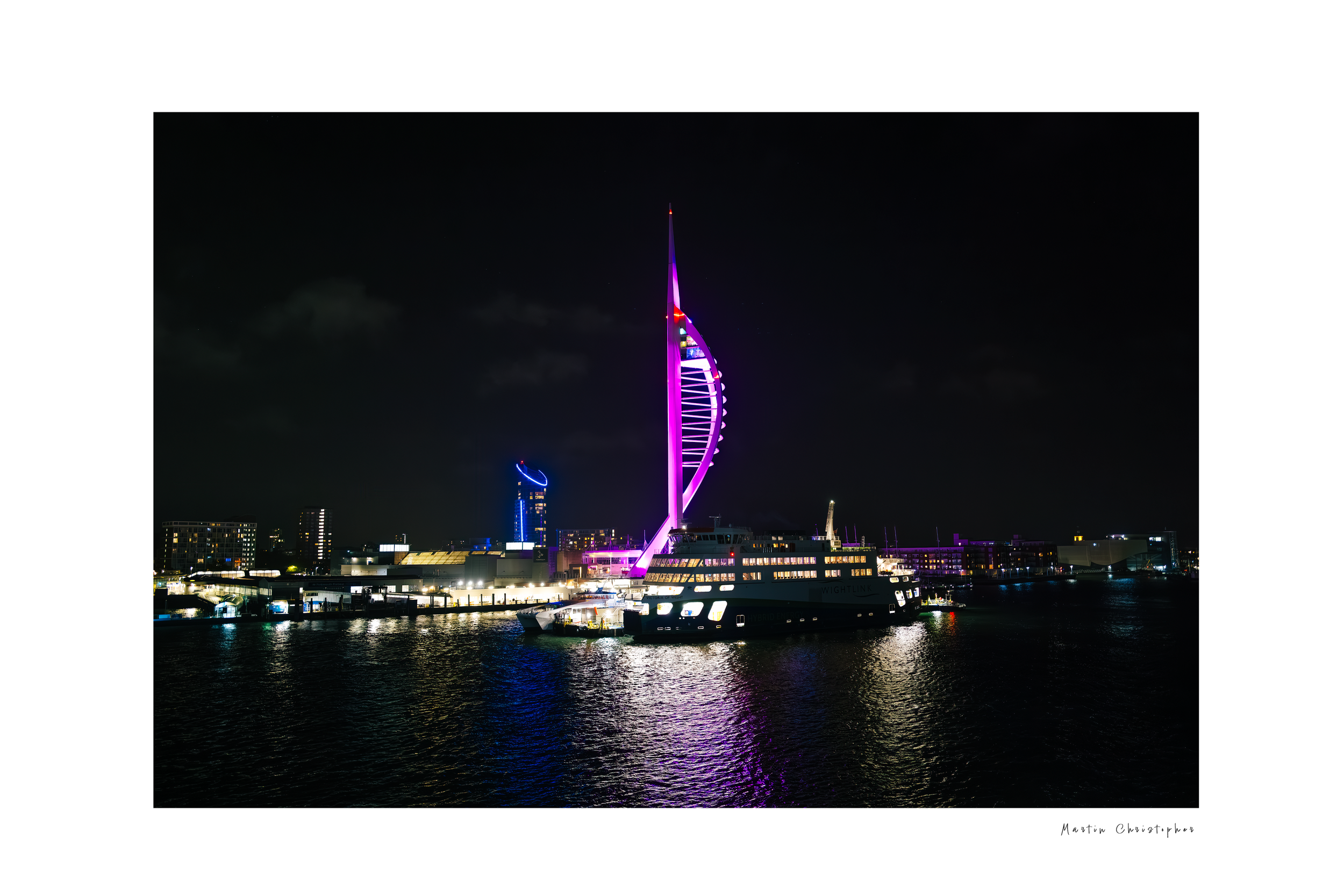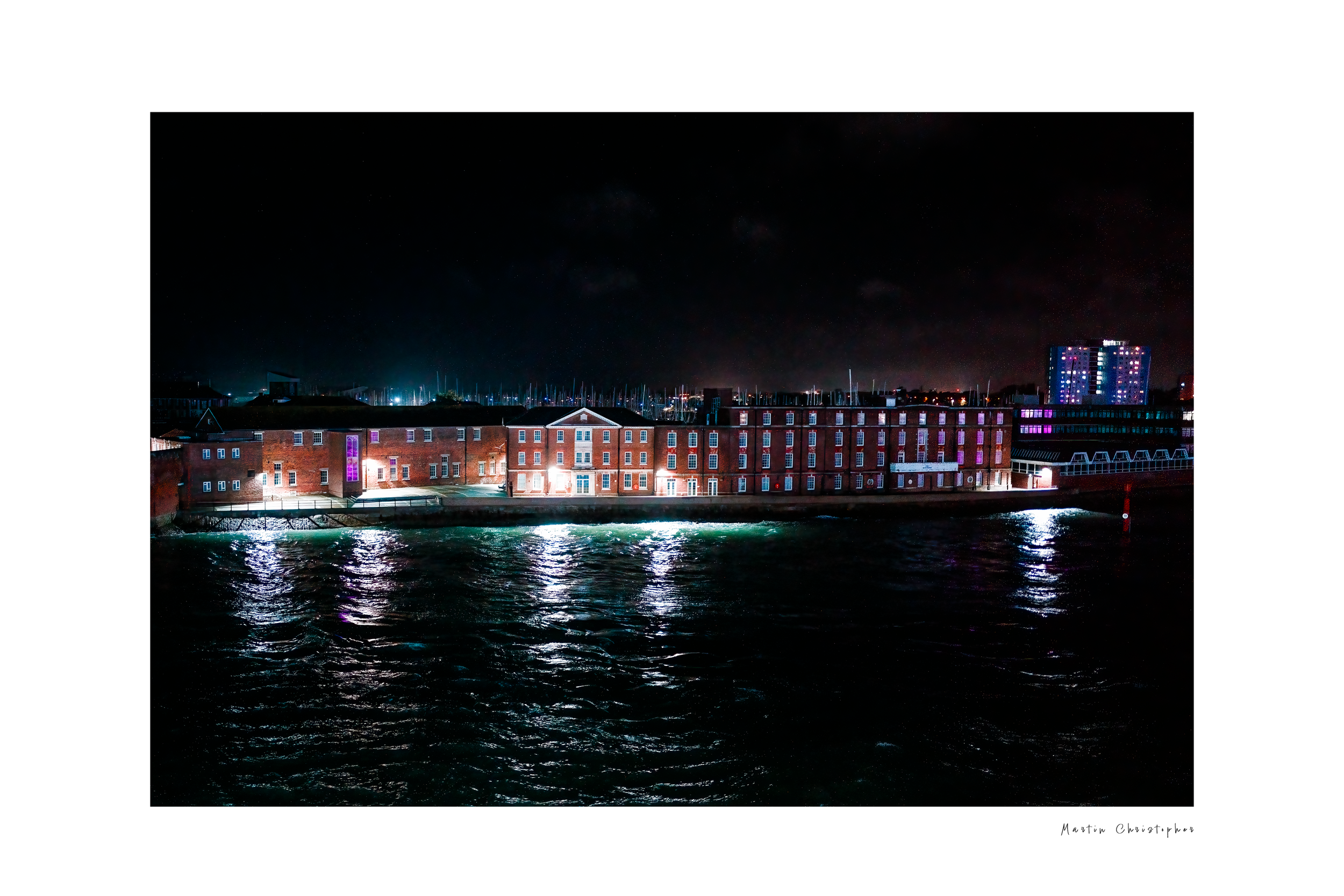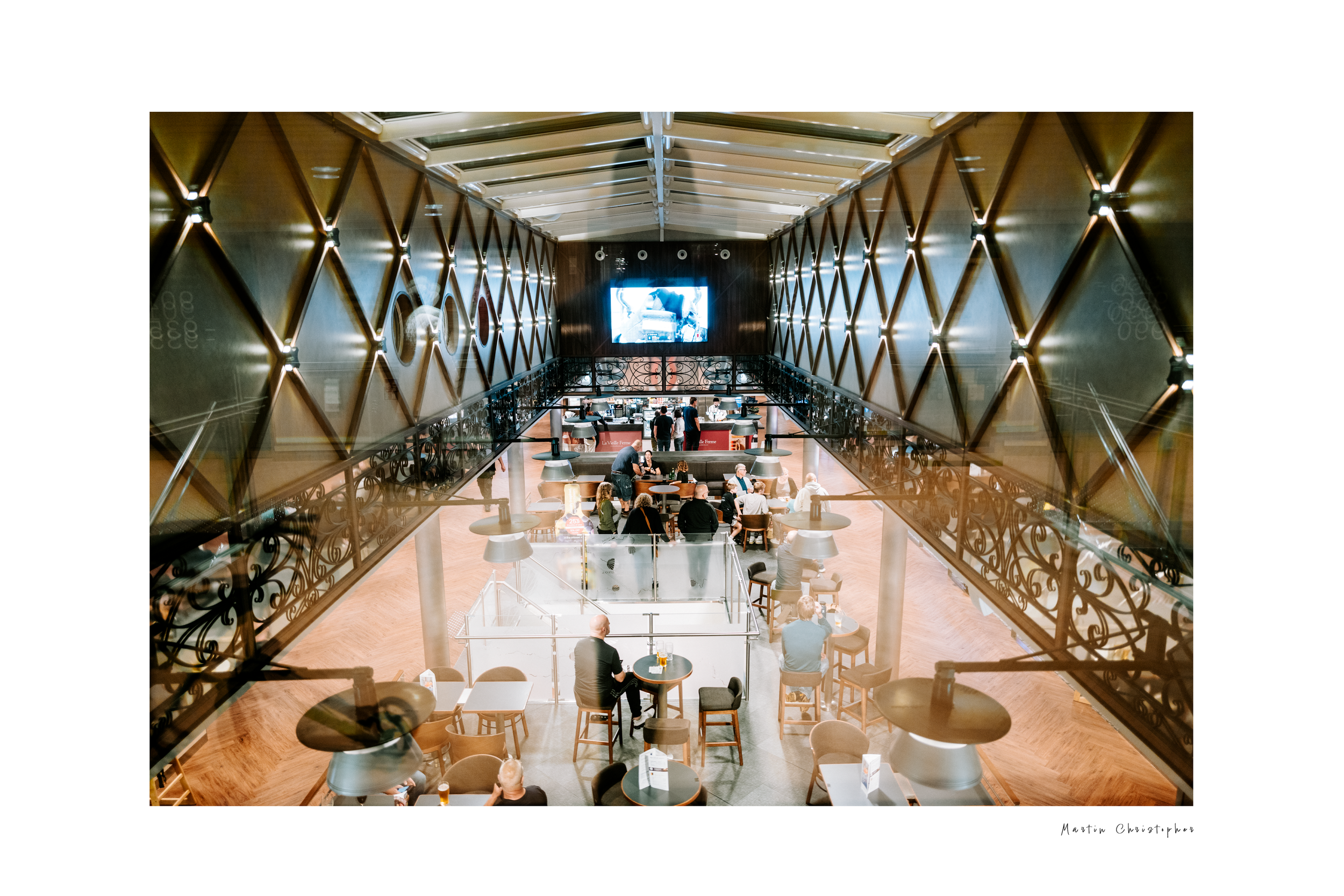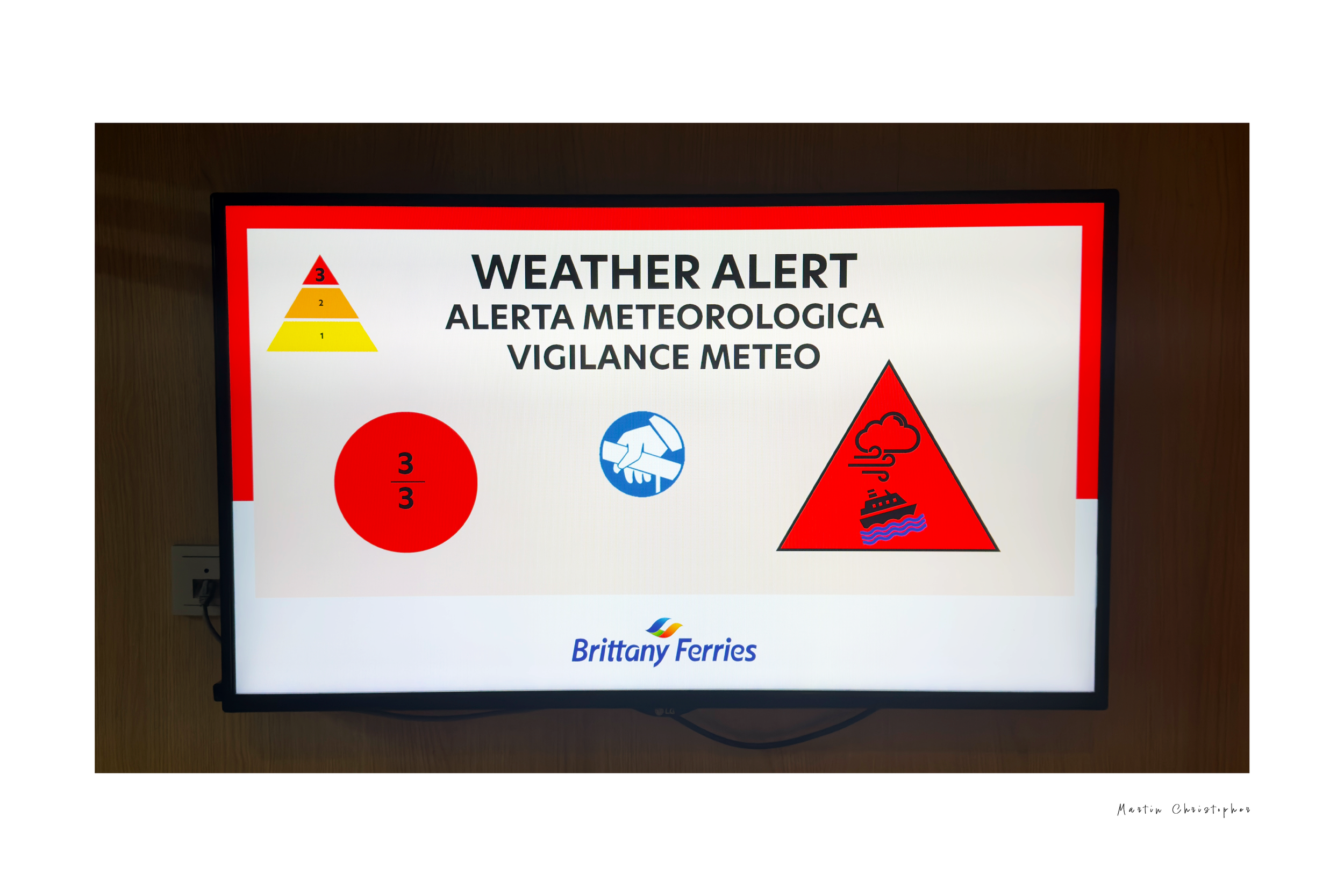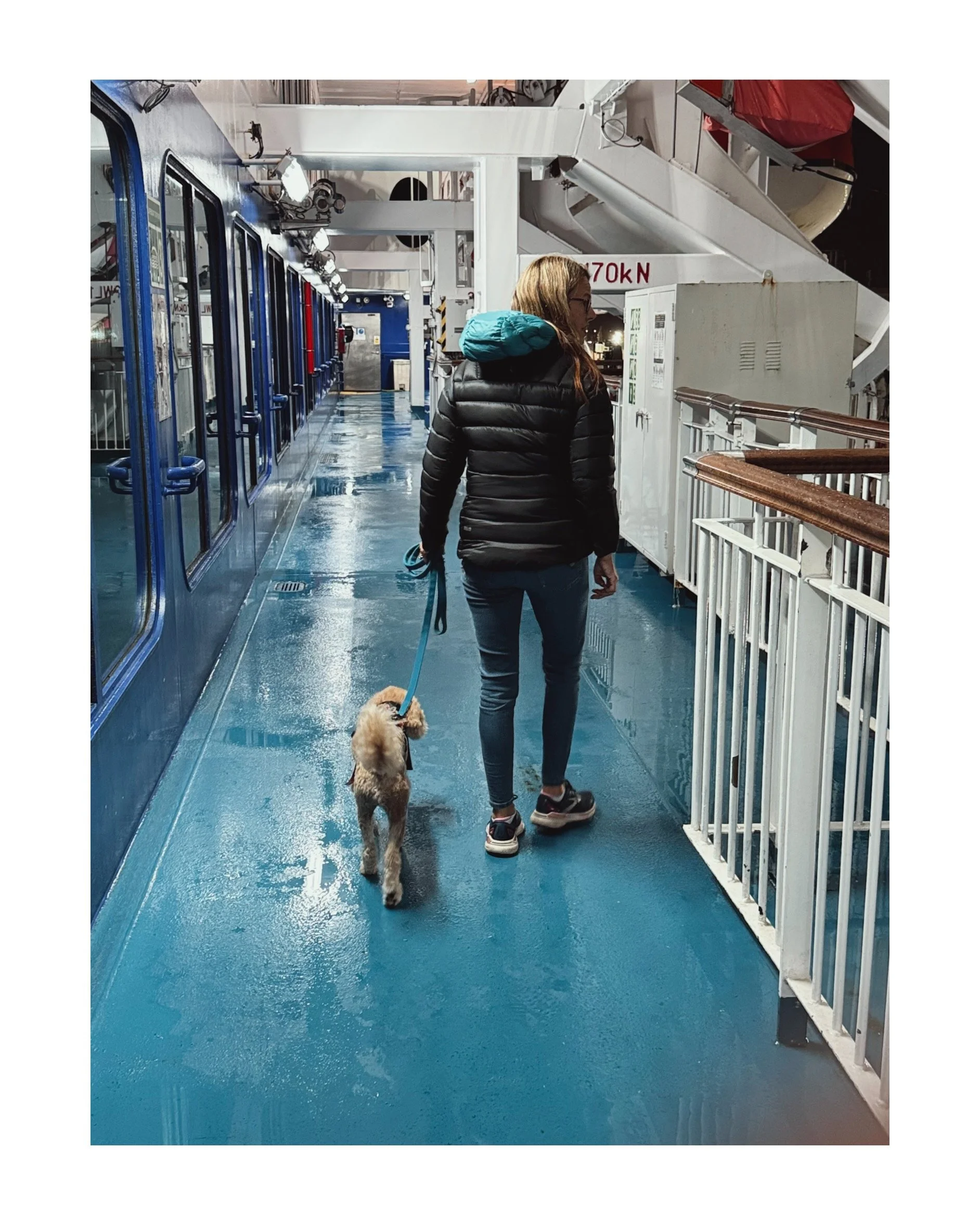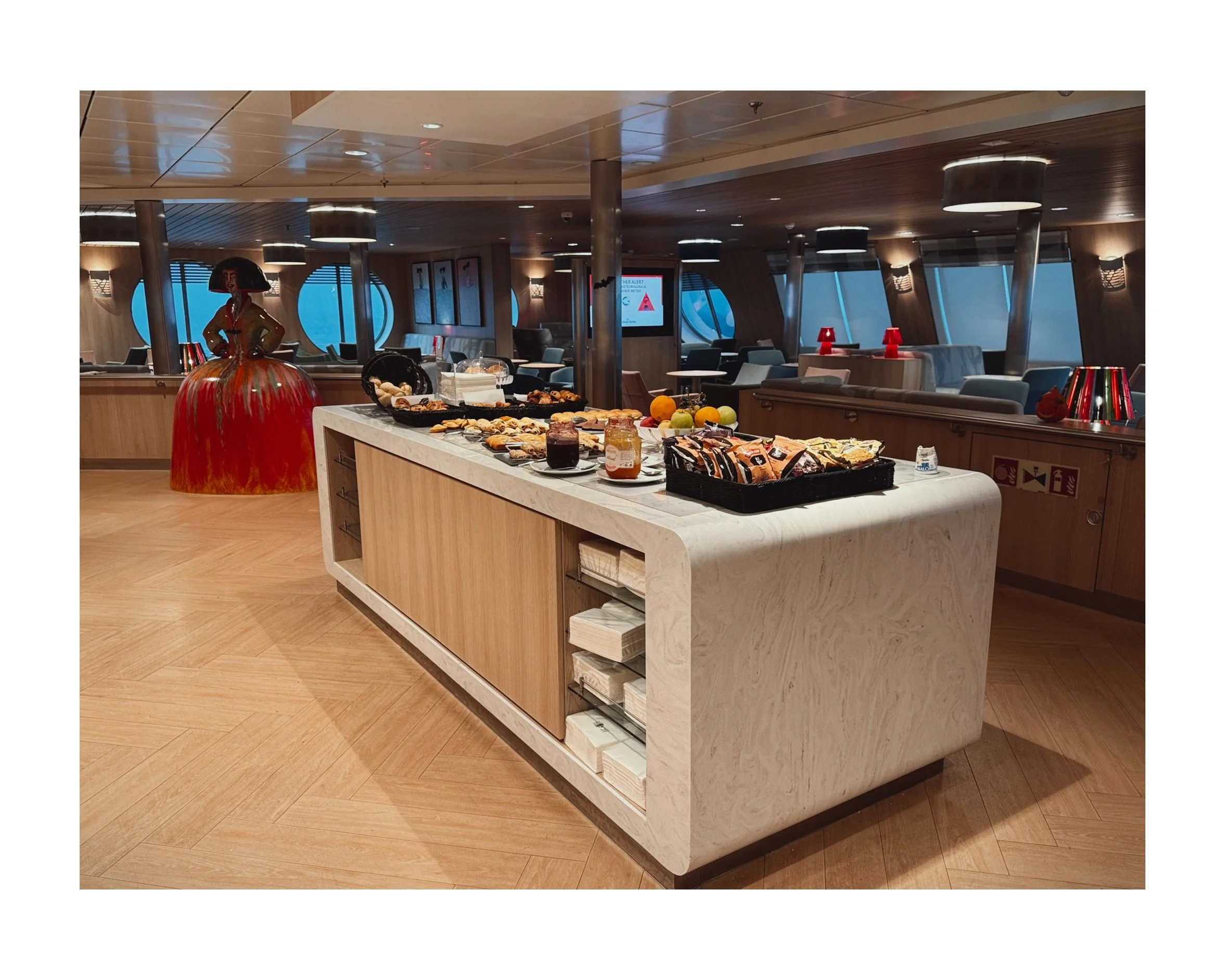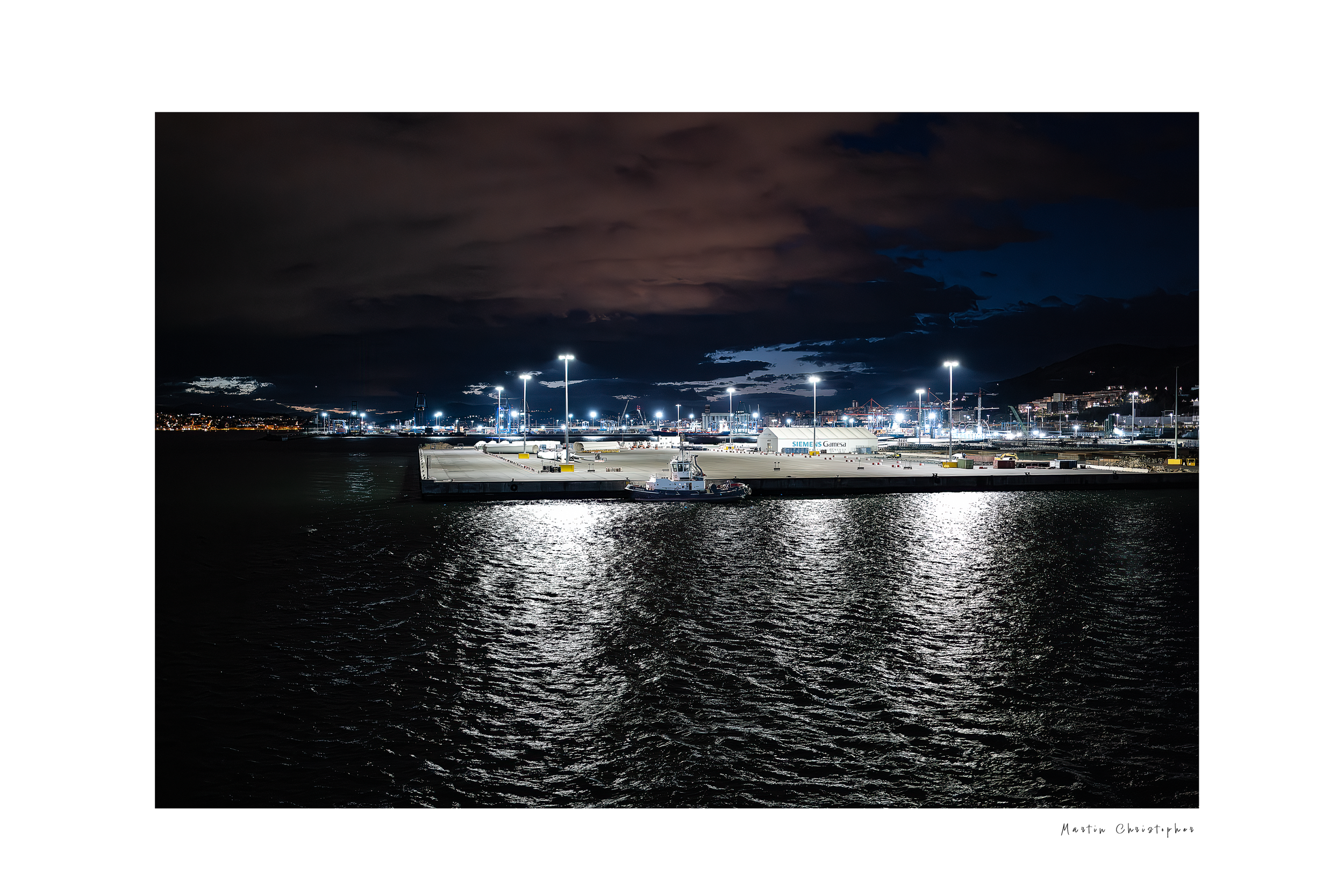Riding the Winds of the Sea – Crossing the Bay of Biscay
There’s something undeniably romantic about leaving port at night. Portsmouth might not quite match Venice for charm, but as the clock struck 10 p.m. and our ferry eased away from the dock, it had its own kind of magic. The lights of the naval dockyard shimmered across the water, the silhouettes of old warships stood proudly in the half-light, and the Spinnaker Tower glowed like a beacon bidding us farewell. The air was cool, salty, and full of promise.
By no means the biggest ships in the world, our ferry and the one parked alongside felt huge, giving us a real sense of smallness and vulnerability. I was struck by the two tiny figures of workers between the boats, handling the ropes in what looked like a risky, exposed job against the elements.
The Gosport Ferry (image below), is a charming little vessel that has been shuttling passengers across Portsmouth Harbour for over a century. Sleek and dependable, it offers a quick and scenic link between Gosport and Portsmouth, giving travellers a front-row seat to the harbour’s naval activity and waterfront views. In this picture, you can see her gliding past historic ships and bustling quays, a reminder of the harbour’s long maritime heritage.
The Spinnaker, the iconic sail-shaped landmark of Portsmouth Harbour towers over the waterfront at 170 metres, it offers stunning panoramic views of the city, the harbour, and the Solent. In this picture, you can see its sleek, futuristic design lit against the night, a modern contrast to the historic ships moored below and a symbol of the city’s blend of tradition and innovation.
Below is an image of HMS Warrior, launched in 1860 and Britain’s first iron-hulled, armoured warship. A true marvel of Victorian engineering, she combined steam power, full sails, and heavy iron armour, making her the most powerful ship of her day—though she never fired a shot in anger. By the 1870s she was obsolete and spent decades as a depot ship and floating oil jetty, before being rescued from scrapping in 1979 and beautifully restored. Today she sits in Portsmouth as a museum ship, a fascinating glimpse into cutting-edge naval innovation of the Victorian era.
We joined a small crowd on the upper deck — truckers, motorhome travellers, and families clutching takeaway coffees — all watching England slip quietly behind us. The ship’s horn sounded, deep and mournful, and with that we were off, heading south towards Spain and the open Atlantic beyond.
Into the Night
As we slid down the Solent under a canopy of stars, the world seemed to exhale. The lights of the Isle of Wight flickered to starboard before fading completely, leaving only the dark outline of the horizon. The gentle roll of the ferry and the hum of its engines had a soothing rhythm — part lullaby, part reminder that we were no longer on solid ground.
Inside, the bar buzzed with a low-key sense of adventure. Strangers swapped stories of previous crossings, each adding a layer of legend to the Bay of Biscay: “It can be rough,” one trucker warned with a grin. “But you’ll know you’ve travelled.”
By midnight, the ship’s movement had changed — subtle at first, then more insistent. The calm waters of the Channel were long gone; we were entering the Bay. It was clear from the weather information on board it was going to be a spicy crossing.
Managing Poppy on a ferry has never been easy at the best of times. Possessed of a cast-iron bladder and the willpower to match, she usually refuses to wee in what she considers substandard facilities. She’s never been keen on getting her feet wet either, and the decks in the pet exercise area are often hosed down for obvious reasons — which only strengthens her determination not to go. Thankfully, after a bit of a gladiatorial struggle and a battle of wills, she finally relented.
She does, however, like the pet cabins and soon snuggled down quite happily. The cabins are functional, and we slept well. They’re often in demand, so we have to be on the mark to book one. The alternative is the on-board kennels, but that’s not for us — although it clearly works for some. Hence the reason we’ve driven through France to Spain more times than we’ve sailed. The things you do for your dogs!
The Bay of Biscay Awakens
By dawn, the Bay was showing off. The sea had turned that beautiful but intimidating gunmetal grey, the sort that looks almost sculpted by the wind. Waves slapped against the hull with real intent, and walking the corridors required a certain finesse. The crew carried on unfazed, serving breakfast as though balancing trays in a moving lift were perfectly normal.
Riding the Winds
By mid-morning, the outside decks had been closed to passengers, the wind howling across the rails as the ship rolled and dipped through the swells. Even the duty-free shop had battened down its hatches, its glossy displays swaddled in cellophane against the motion of the sea. Clinging to the handrails, we made our way to the Commodore Club Lounge — a calm refuge from the storm. The CC proved well worth the fee, offering generous food and quiet comfort for the entire crossing, all included in the price of entry.
The sea seemed to come alive — endless rolling hills of water, each one rising higher than the last. It wasn’t fear we felt, more awe. You can’t outmatch the Bay of Biscay; you simply learn to move with her.
We took a window seat looking over the front of the boat in the CC lounge and watched the waves crash over the bow
After a second rough night, the Basque coastline came into view , still dark as we approached the dock and all around us, passengers emerged, smiling with some relief, ready to step ashore and tell their own tales of “that night on the Bay.”
Reflections: The Romance of the Sea
The ferry from Portsmouth to Bilbao isn’t just a means of getting somewhere — it’s a journey that can make you feel the distance. It’s about surrendering to the rhythm of the sea, letting the wind remind you that travel was once something wild and unpredictable.
The winds of the Bay of Biscay may test your stomach, but they’ll also stir your soul if you’re lucky or unlucky depending on how you view it. And when you finally reach Bilbao, you don’t just arrive — you land as someone who’s truly ridden the winds of the sea. Smooth crossings are a real possibility, but cross in autumn/winter and you roll the dice.






